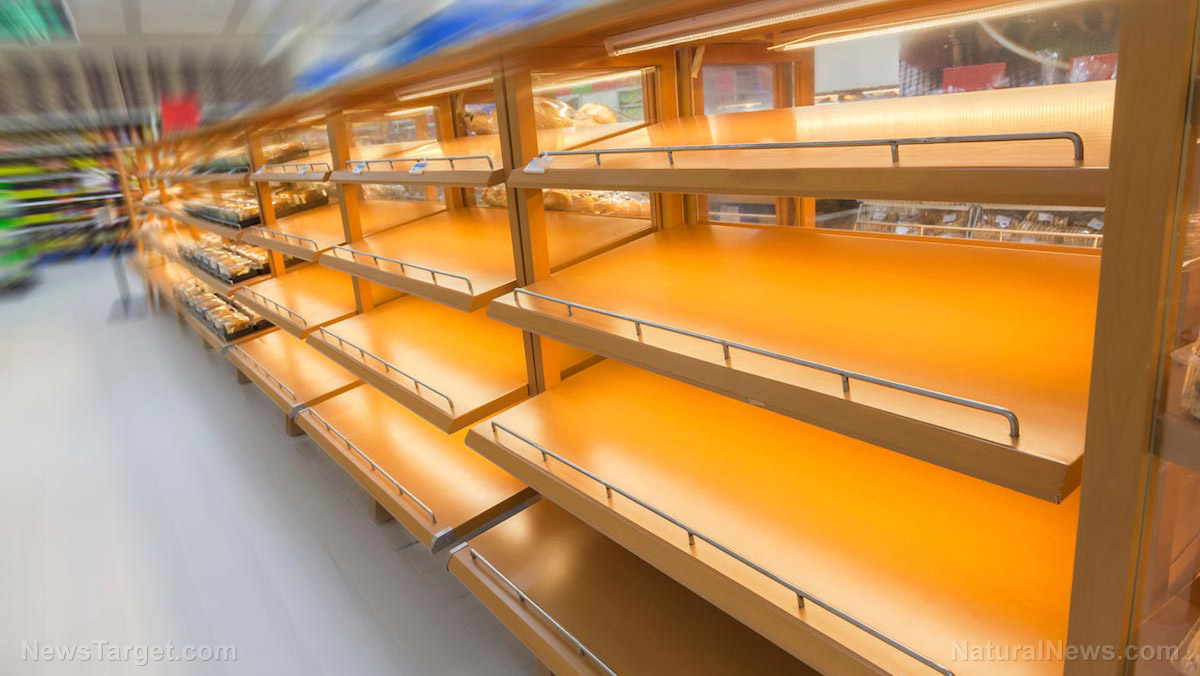by Cassie B., Natural News:
 A strike by union dockworkers at ports on the U.S. East and Gulf Coasts has only been underway for a day, but panic buying has already set in as Americans strip grocery store shelves bare of a number of staple items.
A strike by union dockworkers at ports on the U.S. East and Gulf Coasts has only been underway for a day, but panic buying has already set in as Americans strip grocery store shelves bare of a number of staple items.
There are numerous video clips circulating on social media of people buying up all the water, paper towels and toilet paper they can find at their local supermarkets, a situation compounded by the fact that many people in the Southeast recently stocked up on staples in anticipation of Hurricane Helene.
TRUTH LIVES on at https://sgtreport.tv/
One South Carolina user posted that there was no water at their local grocery store, Sam’s Club or Walmart at 8:30 am. Others are showing pictures of empty store shelves at various stores throughout the country.
The panic buying is providing an unwelcome flashback to the pandemic, with one X user writing: “They cleaned out the toilet paper at my local Walmart in Virginia. Toilet paper hoarding 2.0!”
There is no need to stock up on toilet paper
However, toilet paper is unlikely to be affected by the strike as more than 90 percent of American toilet paper comes from domestic factories. The remainder originates in Mexico and Canada and therefore arrives by truck or rail rather than ship. Instead, it is toilet paper exports to foreign markets that could suffer.
Nevertheless, there are some goods that could end up experiencing shortages, mostly perishable items that are imported into the U.S.
One food that has been identified as a potential candidate for shortages is bananas as imports make up nearly 100 percent of America’s banana supply. With more than half of the nation’s banana imports coming in through the affected ports, it won’t be surprising to see their supply limited as a result of the strike. Tropical fruits and imported alcohol such as beer and wine from Europe could also be impacted.
Other food products that could experience shortages in the near term include coffee, cherries, hot peppers, chocolate and seafood. However, some retailers will have stocked up beforehand in anticipation of the strike, so it may take some time before consumers struggle to find these goods.
The length of the strike will have a big influence on the extent of shortages. Pace University‘s Lubin School of Business Clinical Professor of Management and Management Science Andrew Coggins told CBS Money Watch: “Within two to three weeks you should start seeing shortages. It is a big deal, especially if it lasts for a long time, because so much of what we use on a daily basis has at some point in its life traveled by ship or by water, or at least, some components.”
Another concern beyond shortages is an increase in the prices of goods. Some economists have said that an extended strike could cause the prices of some goods to rise, and if consumers panic, the situation could be even worse.




